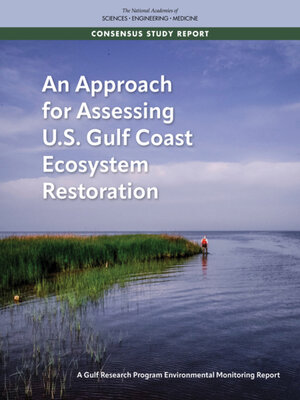An Approach for Assessing U.S. Gulf Coast Ecosystem Restoration
ebook ∣ A Gulf Research Program Environmental Monitoring Report
By National Academies of Sciences, Engineering, and Medicine

Sign up to save your library
With an OverDrive account, you can save your favorite libraries for at-a-glance information about availability. Find out more about OverDrive accounts.
Find this title in Libby, the library reading app by OverDrive.



Search for a digital library with this title
Title found at these libraries:
| Loading... |
<p>Valued for its ecological richness and economic value, the U.S. Gulf of Mexico is under substantial pressure from human activities. The Deepwater Horizon platform explosion and oil spill significantly damaged Gulf ecosystems and led to the largest ecological restoration investment in history. The unprecedented number and diversity of restoration activities provide valuable information for future restoration efforts, but assessment efforts are hampered by many factors, including the need to evaluate the interaction of multiple stressors and consider long-term environmental trends such as sea level rise, increasing hurricane intensity, and rising water temperatures.</p>
<p>This report offers a comprehensive approach to assess restoration activities beyond the project scale in the face of a changing environment. A main component of this approach is using different types of scientific evidence to develop "multiple lines of evidence" to evaluate restoration efforts at regional scales and beyond, especially for projects that may be mutually reinforcing (synergistic) or in conflict (antagonistic). Because Gulf of Mexico ecosystems cross political boundaries, increased coordination and collaboration is needed, especially to develop standardized data collection, analysis, synthesis, and reporting. With these improvements, program-level adaptive management approaches can be used more effectively to assess restoration strategies against the backdrop of long-term environmental trends.</p>






